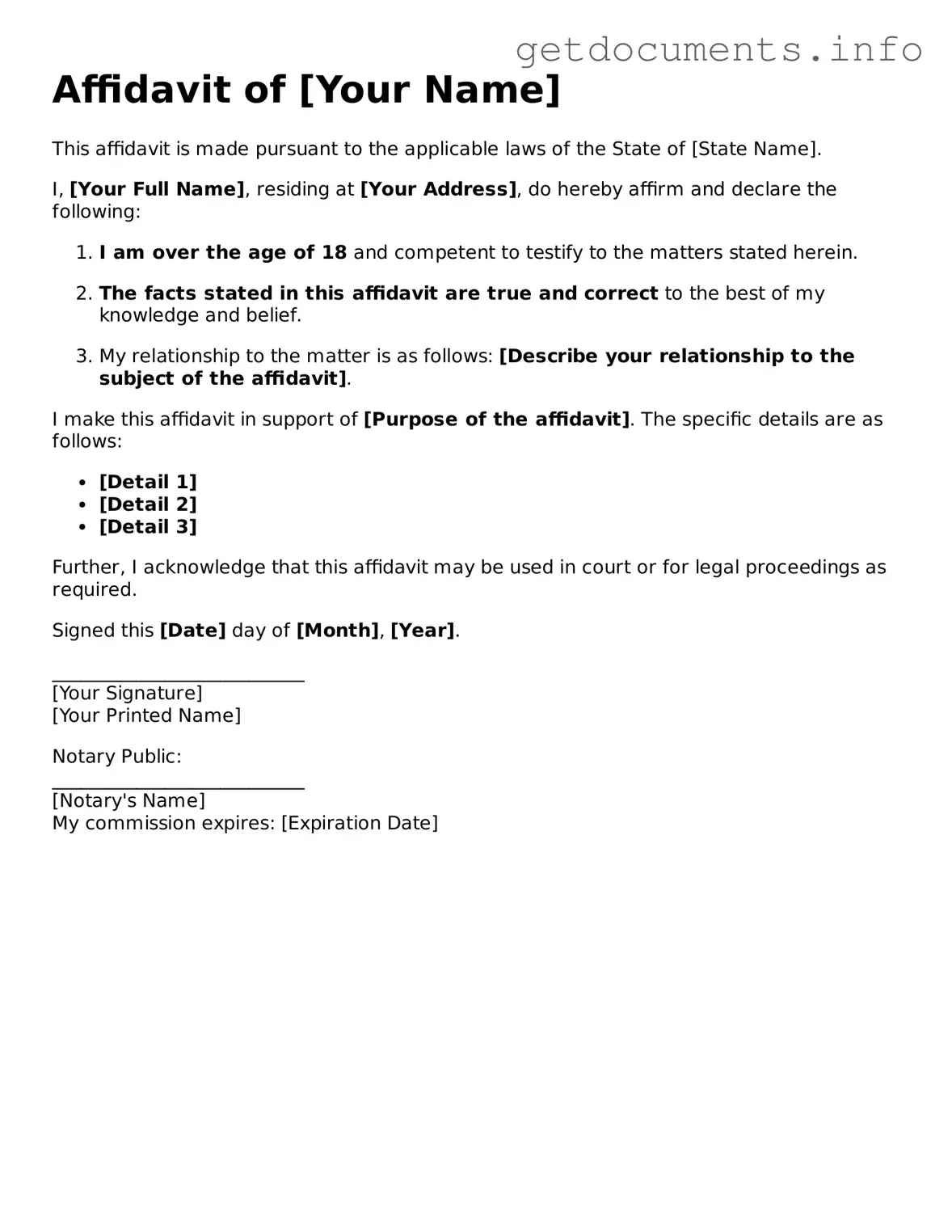Printable Affidavit Document
An Affidavit is a written statement confirmed by oath or affirmation, used as evidence in legal proceedings. This form serves to provide a factual account of a situation, often required in court or administrative processes. To get started on filling out the Affidavit form, click the button below.
Access Affidavit Editor

Printable Affidavit Document
Access Affidavit Editor
Got places to be? Complete the form fast
Fill out Affidavit online and avoid printing or scanning.
Access Affidavit Editor
or
⇩ PDF File
